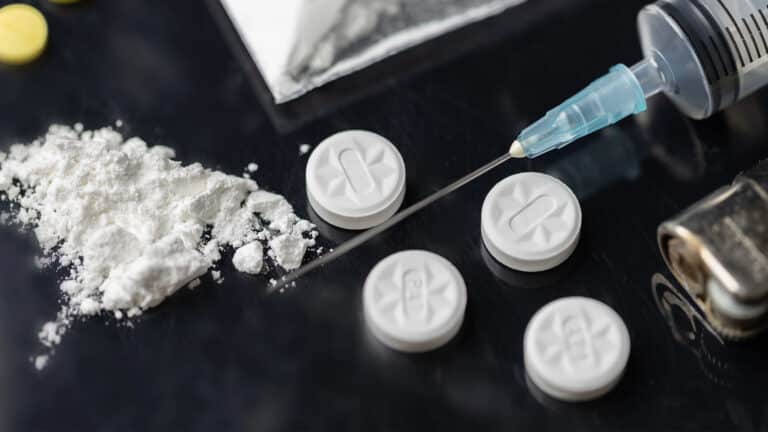Choosing the right relapse prevention therapy can profoundly influence your long-term recovery journey. Addiction is a chronic, relapsing condition, and effective aftercare plays a critical role in sustaining the progress you achieve during detox and rehabilitation. We recommend considering a comprehensive model that integrates evidence-based relapse prevention therapy with medical detoxification and skill-building counseling. At The Hope House, our multidisciplinary teams are committed to guiding you through each phase—detox, residential treatment, and outpatient care—so that you can build resilience, reduce the likelihood of setbacks, and embrace a brighter future.
Understand relapse risks
Relapse is rarely an abrupt event. Instead, it unfolds across emotional, mental, and physical phases that often begin well before substance use resumes. Recognizing these patterns early empowers you to intervene proactively, preserving the gains made in treatment.
Chronic relapse patterns
Addictive disorders are chronic brain diseases characterized by impairments in the neural circuits that govern reward, motivation, and self-control. Relapse rates for substance use disorders range from 40 to 60 percent, a figure comparable to chronic medical conditions such as asthma, hypertension, and diabetes [1]. Furthermore, approximately 40 to 80 percent of patients who complete formal treatment experience at least one lapse within the first year, with around 20 percent returning to pre-treatment levels of use [2]. Consequently, expecting uninterrupted abstinence without ongoing support can undermine your confidence and resilience.
Stages of relapse
Mapping the three relapse stages can help you identify warning signs and activate coping strategies before substance use re-emerges.
| Stage | Key indicators | Recommended response |
|---|---|---|
| Emotional relapse | Isolation, changes in sleeping or eating, denial | Reconnect with support network, renew self-care routines |
| Mental relapse | Cravings, bargaining with yourself, fixating on use | Practice cognitive reframing, engage in relapse prevention sessions |
| Physical relapse | Actual substance use | Seek immediate clinical intervention, review medication regimen |
By understanding each phase, you can interrupt the progression toward a full relapse and reinforce your commitment to recovery.
Explore relapse prevention
A robust prevention program combines cognitive-behavioral techniques, mindfulness strategies, and, when appropriate, pharmacological support. Integrating these components strengthens your ability to manage triggers and maintain abstinence.
Cognitive behavioral therapy
Cognitive behavioral approaches form the backbone of many relapse prevention models. Grounded in Albert Bandura’s Social Cognitive Theory and G. Alan Marlatt’s pioneering work in the 1980s, this method helps you:
- Identify high-risk situations that may prompt cravings
- Challenge negative thought patterns that lead to substance use
- Develop practical coping skills to navigate stress and social pressures
Standard relapse prevention therapy typically involves twelve weekly sessions, each building your self-efficacy and reinforcing adaptive behaviors. Studies demonstrate that this structured approach significantly reduces the severity and frequency of relapses, particularly for individuals with higher levels of dependence or co-occurring psychopathology [3].
Mindfulness-based relapse methods
Mindfulness-based relapse prevention (MBRP) complements cognitive strategies by teaching you to observe cravings, thoughts, and emotions without judgment. Through guided meditation and mindful awareness exercises, you learn to:
- Recognize triggers in real time
- Respond to discomfort with acceptance rather than reaction
- Cultivate present-moment awareness that reduces automatic relapse behaviors
Preliminary research indicates that MBRP is as effective as standard relapse prevention models, though further studies are needed to confirm any superiority in long-term outcomes [3].
Medication-assisted strategies
When clinically indicated, incorporating medications into your aftercare plan can further reduce relapse risk. Common pharmacological interventions include:
- Disulfiram, which deters alcohol use by producing unpleasant physiological reactions
- Naltrexone and acamprosate, which reduce cravings and support abstinence in alcohol use disorders
- Methadone and buprenorphine, full and partial opioid agonists that stabilize brain chemistry and diminish withdrawal symptoms
These medications are most effective when combined with therapy and monitoring through a medication assisted treatment program. We recommend discussing your medical history and treatment goals with our physicians to determine the optimal regimen for your needs.
Evaluate Hope House programs
Selecting a facility that offers a seamless continuum of care—beginning with detox and extending through outpatient support—ensures that you receive consistent, coordinated services as you progress.
Comprehensive detoxification services
Your recovery often begins with medical detoxification, where clinically supervised protocols manage withdrawal safely and comfortably. At The Hope House we provide specialized detox tracks for:
- Alcohol alcohol detox program
- Opioids opioid detox center
- Fentanyl fentanyl detox treatment
- Heroin heroin detox program
- Other substances, including cocaine, meth, marijuana, and prescription medications
In addition, our facility functions as a dedicated detox and residential treatment center, ensuring a smooth transition from withdrawal management to therapeutic care.
Residential treatment
Following detox, you may benefit from immersive inpatient or residential programming designed to strengthen coping mechanisms and address underlying issues. Our residential tracks include:
Within these settings, our multidisciplinary teams integrate group therapy, individual counseling, relapse prevention education, and complementary services such as yoga or art therapy to support holistic healing.
Outpatient and step-down care
As you prepare to reintegrate into daily life, our outpatient options offer flexible support tailored to your schedule:
These programs reinforce relapse prevention strategies in real-world contexts, enabling you to apply coping skills under professional guidance while maintaining work, school, or family commitments.
Assess therapy modalities
Beyond structured programs, targeted therapeutic interventions refine your coping toolkit and foster sustained change.
Individual and group counseling
Personalized one-on-one sessions uncover the unique factors that contribute to your substance use and equip you with tailored strategies. Simultaneously, group therapy for substance abuse cultivates peer support, normalizes recovery challenges, and reinforces accountability. Based on our expertise, combining individual and group formats accelerates skill acquisition and enhances motivation.
Family engagement
Addiction impacts not only you but also your closest relationships. Our family therapy for addiction recovery sessions educate loved ones on the dynamics of substance use disorders, improve communication, and rebuild trust. Engaging your support network early fosters a stable environment that mitigates relapse triggers.
Dual diagnosis treatment
When mental health conditions co-occur with addiction, integrated care is essential. Our therapy for dual diagnosis blends psychiatric evaluation, medication management, and specialized counseling to address depression, anxiety, PTSD, or other disorders concurrently with substance use, reducing the risk of relapse driven by untreated psychological symptoms.
Plan aftercare services
A well-structured aftercare plan extends relapse prevention beyond the confines of formal programs, scaffolding your recovery as you transition to independent living.
Structured aftercare planning
In collaboration with your treatment team you will develop an individualized aftercare roadmap that may include:
- Continued participation in community support groups
- Scheduled check-ins with a therapist or case manager
- Ongoing medication management
- Periodic progress evaluations and goal adjustments
By formalizing these elements in an aftercare planning for addiction framework, you maintain accountability and clarity around your recovery milestones.
Peer support and community resources
Connecting with peer-led organizations and sober communities provides an additional safety net. Whether through 12-step meetings, SMART Recovery, or faith-based groups, these networks offer encouragement, shared insights, and practical guidance. While efficacy can vary among individuals, consistent engagement reinforces your commitment to sobriety and reduces isolation—a key risk factor for relapse.
Choose your recovery path
Every individual’s journey to sustained recovery is unique. We recommend collaborating with The Hope House team to tailor a comprehensive addiction recovery program that aligns with your circumstances and goals.
Tailor your care plan
Based on your clinical assessment, you may progress through our continuum—from a drug and alcohol treatment program that addresses immediate withdrawal needs to a long-term comprehensive addiction recovery program emphasizing relapse prevention. Our integrated model ensures that each level of care builds on the last, enabling you to refine coping skills, reinforce motivation, and adapt strategies as challenges arise.
Getting started
To begin, contact our admissions specialists for a confidential evaluation. We will review your history, discuss appropriate levels of care—whether it be detox, inpatient alcohol rehab, outpatient therapy, or a combination—and outline the next steps. Our expertise indicates that an early, structured approach to aftercare and relapse prevention substantially improves outcomes. When you choose The Hope House, you gain not only clinically proven interventions but also a committed partner in your recovery.
By embracing a detailed relapse prevention therapy plan within a continuum of care, you empower yourself to navigate cravings, manage stress, and uphold your commitment to sobriety. Your brighter future begins with an informed decision today.







